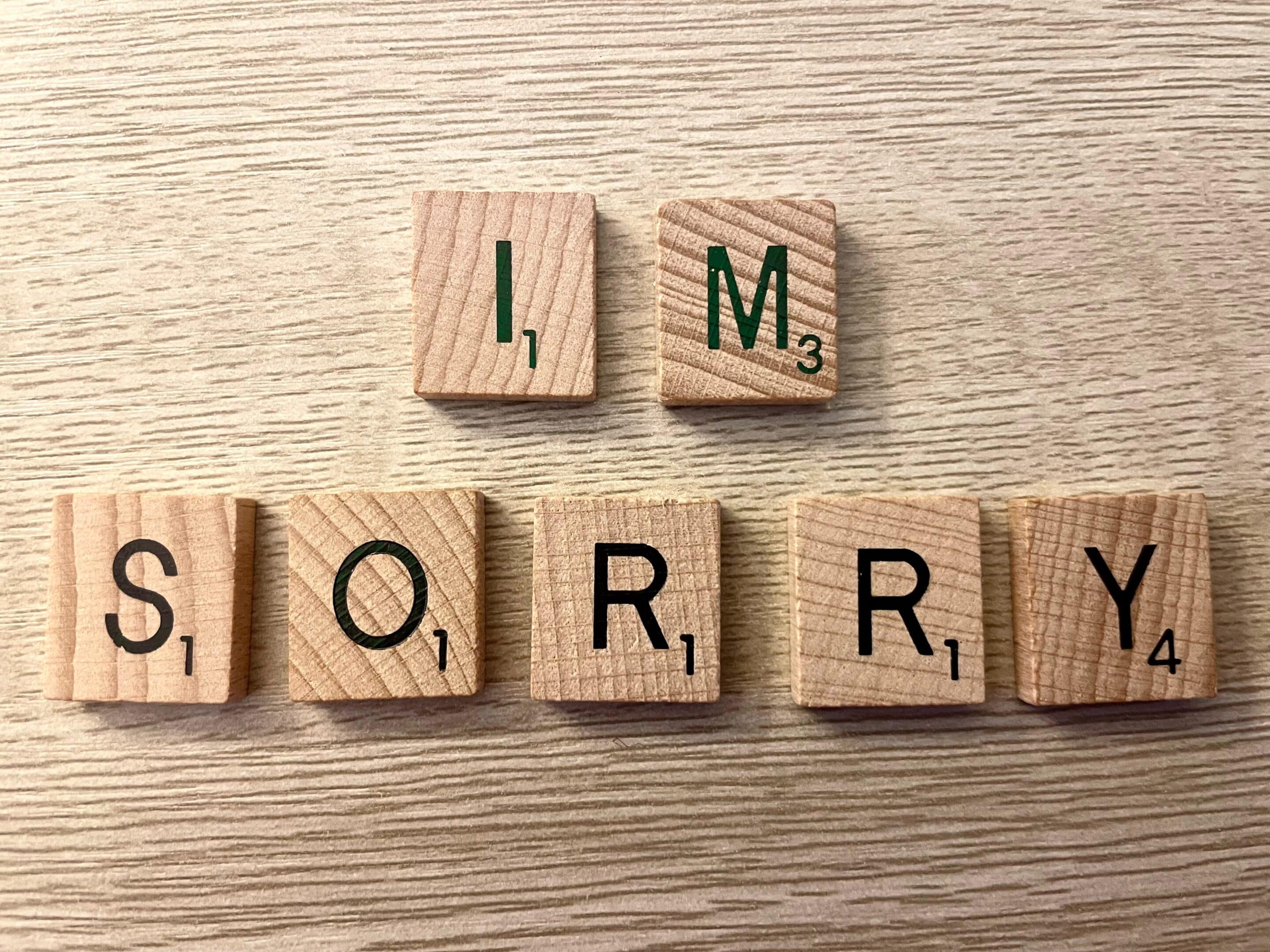Why is it so hard to apologize? Saying “I’m sorry” seems like a simple anecdote to a problem, so why can it sometimes be the hardest thing to do? Apologizing is the repair needed to build a bridge back to others. Understanding how to apologize within a relationship can repair damage, avoid further misunderstandings, and create a more profound trust through the dynamic process of forgiveness. Let’s talk about why apologizing is so tricky and outline five apology languages.
Why it’s so hard to apologize
You may feel incredibly vulnerable when you admit you made a mistake. You may feel fear and anxiety about how someone will receive your apology. However, the fear that may keep you from apologizing can create more damage and resentment. In the introduction to the book The 5 Apology Languages: The Secret to Healthy Relationships, Dr. Gary Chapman and Dr. Jennifer Thomas write “We believe that going beyond a quick ‘I’m sorry’ — learning to apologize effectively — can help rekindle love that has been dimmed by pain.”
Apologies bring us face-to-face with the fact that we may have harmed another person. This awareness can elicit uncomfortable and sometimes painful feelings of shame and guilt. Our consciences are trained to self-protect and shift our feelings of guilt to blame others. This form of self-preservation keeps us from finding responsibility and putting the focus on others.
Additionally, you may not have witnessed or experienced the act of a sincere apology during your childhood. If you did not have this modeled for you growing up, apologizing can feel foreign and incredibly uncomfortable.
The 5 Apology Languages
Dr. Gary Chapman, author of The 5 Love Languages, and Dr. Jennifer Thomas book discusses the challenges and importance of apologizing: The 5 Apology Languages: The Secret to Healthy Relationships. Chapman and Thomas detail five ways to tell or show a person you’re sorry. It is also discussed that understanding your primary apology language can help you identify what you may need to “help heal hurting relationships.” The authors encourage learning your partner’s primary apology language to build trust and resolve conflict efficiently. It is very possible for individuals to have multiple apology languages depending on the situation. It is also possible for some to consistently lean towards one language.
The five apology languages are:
Expressing regret
You can express regret with the simple act of saying, “I’m sorry.” You acknowledge you have done something that has harmed another and give a direct and basic apology.
Accepting responsibility
If accepting responsibility is your apology language, you own up to your part of what went wrong. This is not about excusing or fixing things for the other person but about giving them the ownership in where you went wrong. [smoothing needed]
Making restitution
Those who make restitution are not only willing to make things right, but they also take action. Making restitution is relayed clearly through the adage, “Action speaks louder than words.”
Genuinely repenting
When someone demonstrates this apology language, they admit harm was done and are committed to making change. Genuinely repenting requires actively ensuring you won’t repeat the same mistake.
Requesting forgiveness
The fifth apology language involves asking the person you hurt if they forgive you. The authors advise that this apology language may include asking your partner if they are willing to forgive. Requesting forgiveness shows that you respect your partner’s feelings and care about repairing any damage you have caused.
What’s your apology language?
Dr. Chapman and Dr. Thomas offer a free quiz that helps identify your apology language. This simple quiz consists of a series of questions that takes approximately 5 minutes to complete. Your results are immediately given after completion.
Once you get your results, sit down with your partner to discuss. This dedicated discussion can help you better understand how to move toward future conflict resolution and forgiveness. Try to allocate focused time where you can learn your partner’s language and discuss if this information rings true for each of you. It is also important to ask your partner how it would feel if you were able to speak that language
Join us for our free monthly workshop on apology languages
There is much more to the critical skill of apologizing. To learn more about apology languages and the importance of forgiveness within a relationship, we invite you to attend our free monthly workshop on apology languages: Relationship Skill: Making An Apology. If you could use professional guidance and are ready to make an appointment, contact us to get started.
We offer services for those who live in Arizona, North Carolina, South Carolina, and Texas.
